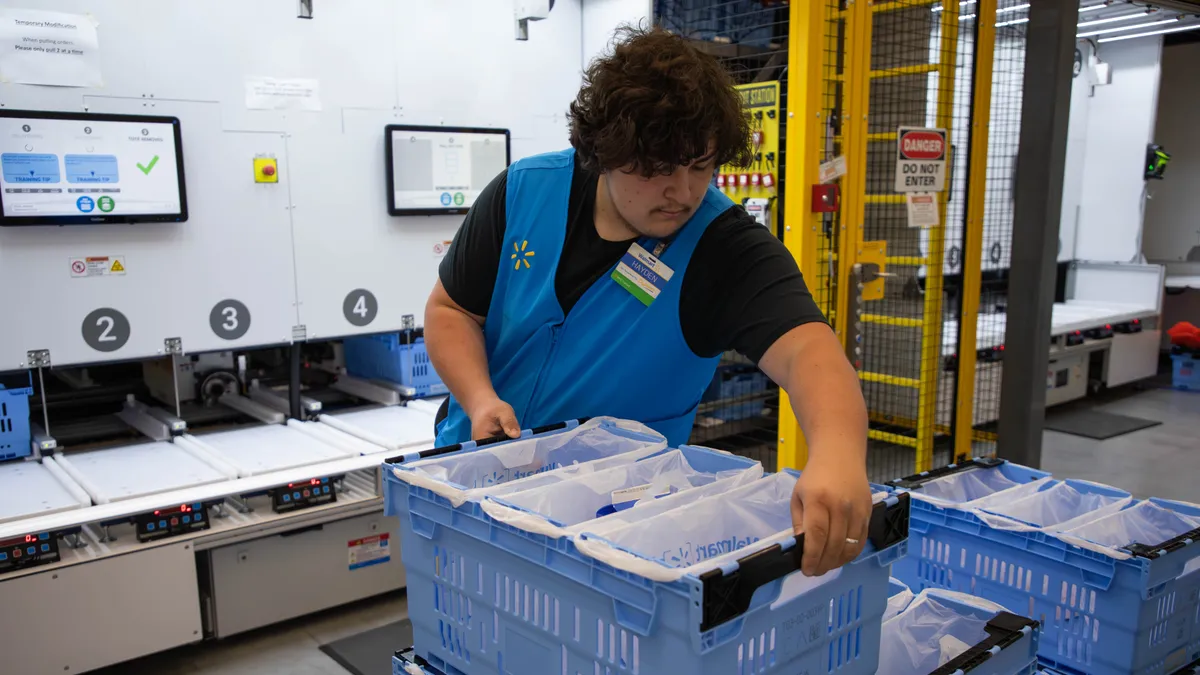Dive Brief:
- Walmart opened a store-based fulfillment center in its hometown of Bentonville, Arkansas, the retail giant announced Monday.
- The facility, known as a market fulfillment center, will increase the number of daily orders a store is able to fulfill and frees up store employees to handle other tasks, the company said. It's Walmart's second market fulfillment center nationwide, the first being a proof-of-concept center in Salem, New Hampshire.
- Like Salem, the Bentonville facility uses a proprietary storage and retrieval system named Alphabot. Robotics automation company Alert Innovation designed this system specifically for Walmart before being acquired by the retailer.
Dive Insight:
Walmart is one store closer to fulfilling its plan to add market fulfillment centers to dozens of stores beyond Salem, which first began operations in 2019. A company blog post last year said that bringing Alert Innovation’s technology and capabilities in-house will help it deploy these centers with greater speed going forward.
“This new order fulfillment system is truly game changing,” said Ryan Simpson, store manager at the Bentonville location, in a statement. “Not only does it enhance the customer experience through quicker, more accurate online order fulfillment, it also provides us the runway to continue growing our business now and in the future.”
The typical order fulfillment process involves employees picking items within the store, but when a market fulfillment center is involved, automated bots retrieve items from within the center. The items are then delivered to a workstation for order assembly.
“Once the order is collected, the system stores it until it’s ready for pickup," according to a 2021 company blog post. "This whole process can take just a few minutes from the time the order is placed to the time it’s ready for a customer or delivery driver to collect.”
It’s a good time for Walmart to speed up fulfillment processes for online orders at its stores — the company’s store-fulfilled delivery sales have nearly tripled to more than $1 billion a month.














